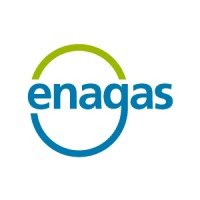Idemitsu and JERA to work on hydrogen supply chain in the Ise Bay Area
The two companies will jointly establish a hydrogen supply chain based in the Ise Bay area.

Idemitsu Kosan Co., Ltd. and JERA Co., Inc. have today concluded a memorandum of understanding stipulating that they will jointly consider establishing a hydrogen supply chain based in the Ise Bay area.
On the back of demand for decarbonization, hydrogen—which emits no CO2 when burned—is expected to be used in large quantities at power plants and in industrial areas as a next-generation replacement for fossil fuels. It is essential, therefore, to develop large-scale receiving and supply bases near areas where hydrogen will be in demand.
The Ise Bay area, where many industries are concentrated, has the future potential to become a large-scale receiving and supply base. Idemitsu is engaged in the business of receiving and refining crude oil and supplying petroleum products in the area. JERA owns thermal power plants and LNG receiving terminals in the area and strives to ensure a stable supply of electricity in the Chubu region.
Idemitsu and JERA will utilize their accumulated technology, knowledge, and assets to contribute to the establishment of a stable, economical supply chain for hydrogen as part of their efforts to achieve carbon neutrality. The two companies will also cooperate with “Hydrogen Utilization Study Group in Chubu”, which is working to establish a cross-industrial hydrogen supply chain throughout the Chubu region.
Idemitsu has adopted the “CNX Center” concept of transforming existing manufacturing bases such as refineries and complexes into new low-carbon and resource-recycling energy hubs. Idemitsu aims to establish a supply chain that supplies CO2-free energy by taking advantage of the unique characteristics of each of the group’s sites while fulfilling responsibility for the stable supply of energy.
Under its “JERA Zero CO2 Emissions 2050” objective, JERA has been working to reduce CO2 emissions from its domestic and overseas businesses to zero by 2050, promote the adoption of greener fuels, and pursue thermal power that does not emit CO2 during power generation. JERA will continue to contribute to energy industry decarbonization through its own proactive efforts to develop decarbonization technologies while ensuring economic rationality.
